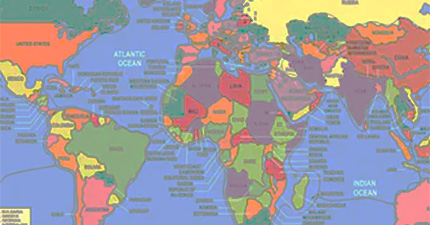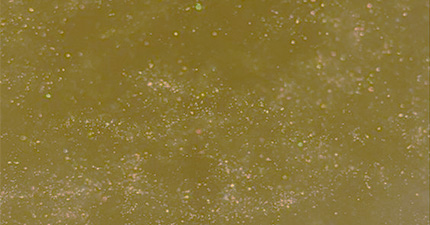Moral questions come up in astrology. A lot of people go to astrologers to consult on moral questions, myself included. Astrologers are also not objective moral dictators. We have no connection to any one and true God. We are regular people who have moral questions about our own lives. Astrologers, just like anyone else, get swept up in future anxiety because our egos think that we should have more control than we do. We are learning what we don’t know along with everyone else who is alive.
“Did I do the right thing when I told my spouse that I can’t take care of his mom?”
“Am I the bad person in my relationships?”
“Is it right to want to be an artist when I see urgent issues all around me? Am I being selfish?”
These are moral questions. Sometimes, we ask moral questions using therapy speak. “Am I crazy/maladjusted/dysfunctional?” “Is this a valid need or am I letting my depression get in the way of my life?” “Am I disabled enough to request the care and consideration that I need?” As an astrologer, I’m never qualified to diagnose anyone of anything. It is my job, however, to listen for moral questions. What are people actually asking?
This is the question that I get the most: “What does astrology say is wrong with me?” Sometimes, we phrase this question as, “What is my weakest trait according to astrology?” or “What are my negative patterns?”
I struggle with questions of this vein. I’m grateful when people ask them because we can use the question when it's asked. We can see where the question is coming from and what the concern is. I also struggle with the question because I don’t usually think that there is anything wrong with people when I consult with them. Yes, your life may have its share of struggles. Certain things may be harder. But that doesn’t necessarily mean that there is anything wrong with you. You may be maladjusted to an oppressive society.
Moral questions feel awkward, judgmental, or even nonsensical sometimes but they are still important. They are. We ask these questions all the time because they are important to understanding what the hell we are doing here and what we are living for. We go on the Am I The Asshole subreddit so that strangers online can get us a moral assessment based on our own descriptions. We hash community conflicts out on social media, debating over people’s goodness oftentimes using therapy speak. We ask moral questions about our work to our close friends. Nothing in the world can stop us from asking moral questions together in public and collective space. We are just too interested in morality.
And, yet, moral questions can’t be answered. They just can’t.
They can be asked. They can be explored. But no one in the world can believe in your innate goodness for you.
Believing and embodying the goodness that you have felt inside of you ever since you were a child is a process, one that you don’t take alone. Questioning your goodness is a process, one that you also don’t take alone.
This is the job of an astrologer in my opinion (and different astrologers may have different ideas about what we are willing or able to offer other people)—I think that my job is to accompany you as you ask moral questions with good faith. When your soul yearns to see your own goodness, my job is to offer you support in that search. My job is to notice when you do see your goodness and to tell you that you have glimpsed something real. My job is to encourage you when you see your potential. My job isn’t to debate with you when you believe that you might be a bad person but to remind you that your fear of being bad comes from your desire to express the goodness that has never once left your soul.
In other words, you know right from wrong. Sometimes you don’t. You run into a moral dilemma. Your knowledge about right and wrong gives your moral dilemmas teeth.
I think that moral companionship is what we ultimately ask of our friends and wider community when we ask them to process various conflicts with us. Did I do something wrong? Am I a bad person? We aren’t asking our friends to judge us objectively but to ask similar questions with us. We’re not supposed to ask moral questions alone. Our emotions aren’t built for aloneness. Moral questions make no sense in isolation because they question our impact and our responsibilities towards other people.
Sometimes, we ask our friends to accompany us on moral questioning as a judge. That’s sometimes the need. I, for sure, have asked my friends to judge me. I’ve also rejected judgment. I can think of at least a handful of instances where a friend tells me when I’m being petty and I forget my anger because I start laughing at myself with someone who knows me very well. Asking for judgment usually takes a lot of trust. I don’t accept judgment from just anyone.
And judges don’t remain judges. Judges become the judged later on. When we put our own judge hats and give our friends our moral feedback, we’re not born arbitrators of what is good or bad. We’re just wearing the judge costume for a while. Maybe an astrologer can wear a judge's costume if wearing such a costume helps our client take their own off but we have to do this kind of thing playfully. We can’t get too comfortable in our costumes. We have to understand that a costume is only a costume.
Your chart doesn’t tell you if you are a good or bad person. Your chart can be a tool that helps you understand how your personality was formed to protect and channel your goodness. Your chart just shows the stars at the time of your birth and the circumstances of your life. It shows you if you are alive and how you are living. Your morality is that justification of life that you never stop searching and yearning for.
Are my needs valid? Am I too much? Am I a good enough person to justify living?
A astrologer accompanies you as you ask moral questions but we can’t answer them. We need to be aware of our own moral follies. We are not divine channelers of God but we can accompany our clients on their moral questioning. Moral questions can be distressing or inspiring. They tend to use a lot of emotion—all kinds of emotions. We need companionship to ask moral questions because we aren’t built to define goodness alone.
1 of 211
>>>


